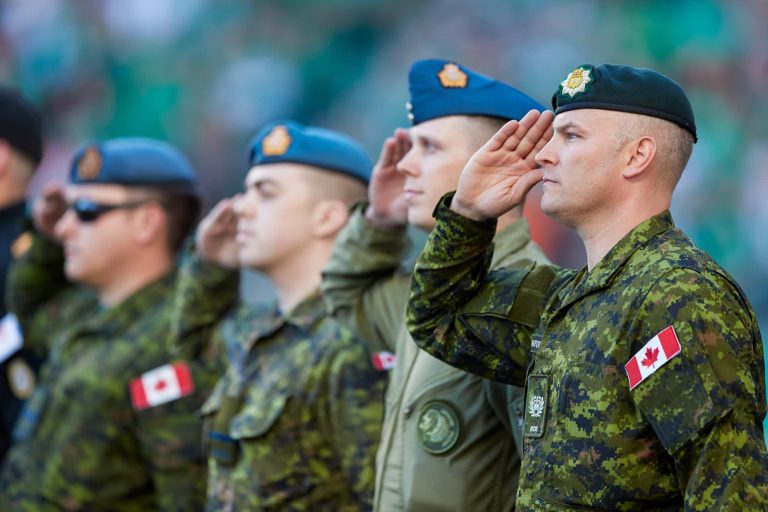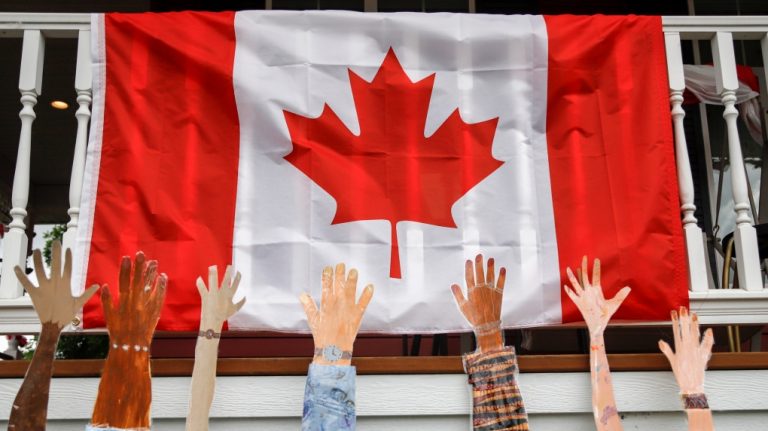On the morning of September 11, 2001, the world looked on in horror as nineteen al-Qaeda militants carried out suicide attacks against the United States. As the twin towers fell, they took with them the lives of nearly three thousand people, twenty-four of whom were Canadian. In the aftermath of the attacks, the Canadian Armed Forces launched Operation Support in an attempt to increase emergency preparedness and aid stranded aircrew and passengers. Subsequently, thousands of U.S. troops were deployed to the vast mountains and dry deserts of Afghanistan, marking the beginning of the Afghanistan war.
In the early phase of the war, Canada and its allies found plenty of success. On October 7, 2001, American and British forces began bombing campaigns against Taliban Forces. Constant, detrimental bombing raids, paired with increased ground combat against Afghan adversaries, led to heavy Taliban losses in the opening months of the war. As the government was slowly toppled, al-Qaeda militants continued to hide out in the perilous mountainous terrain. On December 9, the Taliban surrendered Kandahar, signalling the end of the Taliban regime. Our forces from the elite Joint Task Force 2 (JTF 2) participated in this initial invasion. From 2001 to 2003, fifteen Canadian warships were deployed to nearby waterways as part of Operation Apollo. Scattered fighting would continue across the country for years. In the summer of 2006, Canadian casualties mounted as discrepancies among NATO allies began to emerge. Many nations felt that the U.S. was not as devoted to Afghanistan as it once was. Soon after the election of Barack Obama, additional U.S. reinforcements were sent to Afghanistan. In 2011, al-Qaeda was dealt a colossal blow as their founder and leader, Osama bin Laden, was killed by a U.S. Navy SEAL team. The Taliban, however, continued the fight. As the tenth anniversary of the war came and went, its implications on the homefront took center stage. Public opinion in all NATO countries turned against the war. Back home, then-prime minister Stephen Harper decided to call back all Canadian military personnel in 2014. Over 40,000 Canadians served alongside our allies; 158 CAF members and seven civilians paid the ultimate price. The war cost Ottawa an estimated $18 billion. The last of the Americans didn’t leave Afghanistan until August 2021.
At the outbreak of war, Liberal prime minister Jean Chrétien immediately geared up the Canadian war machine, sending in troops by the thousands with limited public debate. He made this decision seemingly to stay on the good side of the Americans, and sent in even more troops when they turned their sights to Iraq. What he failed to realize is that this would be our first large-scale war since Korea. Opposition leaders frequently pointed out that Chrétien never committed to either side of the cause, and that he put just enough boots on the ground for Canada to “keep its seat at the allied tables.” The U.S. had an inherent, considerable influence on Chrétien.
Little changes were made in our war strategy under new prime minister Paul Martin. Under Martin, our troops were sent to Kandahar, the spiritual home of the Taliban and one of the most treacherous regions in the country. Our casualty rates skyrocketed and the implications of the war on the homefront began to come to light.
Soon after, Canadians decided to move on from Liberal leadership, electing Stephen Harper in 2006. Harper’s leadership differed significantly from that of Martin and Chrétien. Although he continued the fight for a number of years, Harper realized that the Afghanistan war was a dead-end conflict not worth the price. He made plans to withdraw in 2008 while simultaneously making financial promises to the local Taliban resistance.
The Taliban presence in Afghanistan re-emerged when American troops finally pulled out under president Biden. The Afghans largely gave up without a fight, allowing the Taliban to breeze through and take Kabul in a matter of days. At the time, our prime minister largely neglected the Afghanistan crisis, choosing instead to campaign for a virtually pointless $610 million election. At the eleventh hour, Trudeau set forth a haphazard, desperate airlift attempt to get Canadians out of the country. In the last week of August, he falsely proclaimed “we got all Canadians out.” Less than twenty-four hours later, foreign affairs minister Marc Garneau addressed the media, reporting that 1,250 people with ties to Canada remained in Afghanistan after the last Canadian airplane left the tarmac at Kabul. Trudeau’s incompetence left hundreds of Canadians to fend for themselves at a time of great peril. To make matters worse, Liberal minister Maryam Monsef later referred to the Taliban as “our brothers,” stirring national outrage. Ironically, Monsef was appointed the women and gender equality minister, whereas the Taliban are known for their deeply rooted misogynistic values.
The Liberal handling of the Afghanistan crisis was appalling and distasteful. What started as a glorified war to eradicate terrorism itself quickly devolved into a struggle for survival in the Afghanistani mountains. In truth, we were left out to dry in Afghanistan for years under liberal leadership. When the Americans were occupied in Iraq, it was us who did the heavy lifting. When a ceasefire was finally organized, we failed to put together a safe and effective evacuation mission. At a pivotal time, our prime minister chose political gains over bringing his people back unharmed.
Works Cited
Azzi, Stephen, & Foot, Richard “Canada and the War in Afghanistan.” The Canadian Encyclopedia, June 4, 2009. https://www.thecanadianencyclopedia.ca/en/article/international-campaign-against-terrorism-in-afghanistan.
Bimman, Abigail. “Nearly 1,300 People with Ties to Canada Still in Afghanistan Two Weeks after U.S. Pulled Out.” Global News, September 14, 2021. https://globalnews.ca/news/8190932/nearly-1300-people-with-ties-to-canada-still-in-afghanistan-two-weeks-after-u-s-pulled-out/.
“Canada-Afghanistan Relations.” GAC. Government of Canada, August 24, 2021. https://www.international.gc.ca/country-pays/afghanistan/relations.aspx?lang=eng.
Green, Joyce. “Canada Failed Afghanistan by Choice.” East Kootenay News Online Weekly, August 22, 2021. https://www.e-know.ca/regions/east-kootenay/canada-failed-afghanistan-by-choice/.
“Harper Says 2011 ‘End Date’ for Afghanistan Mission | CBC News.” CBCnews. CBC/Radio Canada, September 10, 2008. https://www.cbc.ca/news/canada/harper-says-2011-end-date-for-afghanistan-mission-1.746890.
“He Tried to Warn the World about Al-Qaeda. Then He Was Assassinated 2 Days before 9/11 | CBC Radio.” CBCnews. CBC/Radio Canada, September 13, 2021. https://www.cbc.ca/radio/asithappens/as-it-happens-friday-edition-1.6171560/he-tried-to-warn-the-world-about-al-qaeda-then-he-was-assassinated-2-days-before-9-11-1.6171563.
History.com editors. “9/11 Timeline.” History.com. A&E Television Networks, June 21, 2011. https://www.history.com/topics/21st-century/9-11-timeline.
NATO. “Countering Terrorism.” NATO, October 22, 2021. https://www.nato.int/cps/en/natohq/topics_77646.htm.
Ness, Ryan, Ditchburn, Jennifer, & Breton, Charles “A Soldier’s Hard Look Back at Canada’s Afghan Mission.” Policy Options, October 7, 2021. https://policyoptions.irpp.org/magazines/august-2021/a-soldiers-hard-look-back-at-canadas-afghan-mission/.
Spector, Norman. “Jean Chrétien’s War.” The Globe and Mail, July 16, 2009. https://www.theglobeandmail.com/news/politics/second-reading/jean-chretiens-war/article787932/.
“Timeline: U.S. War in Afghanistan.” Council on Foreign Relations. Council on Foreign Relations. Accessed January 28, 2022. https://www.cfr.org/timeline/us-war-afghanistan.
Turnbull, Sarah. “Afghanistan Crisis Dominates Campaign Trail as Canada’s Evacuation Mission Ends.” CTV News. CTV News, August 26, 2021. https://www.ctvnews.ca/politics/federal-election-2021/afghanistan-crisis-dominates-campaign-trail-as-canada-s-evacuation-mission-ends-1.5562307.
Witte, Griff. “Afghanistan War.” Encyclopædia Britannica. Encyclopædia Britannica, inc. Accessed February 1, 2022. https://www.britannica.com/event/Afghanistan-War.



